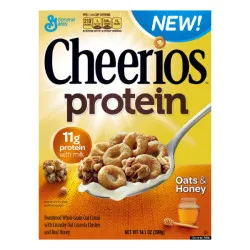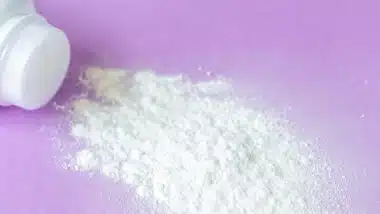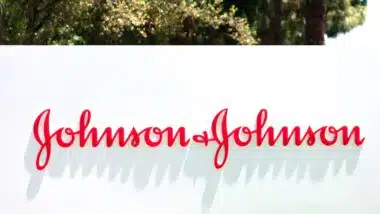 Cheerios customers are fighting back against General Mills’ motion to dismiss a potential class action lawsuit that accuses the cereal maker of falsely advertising its “protein” line as healthier than original Cheerios.
Cheerios customers are fighting back against General Mills’ motion to dismiss a potential class action lawsuit that accuses the cereal maker of falsely advertising its “protein” line as healthier than original Cheerios.
Plaintiffs Nancy Coe and Tori Castro of California, as well as Pamela Mizzi from New York, argue that General Mills is trying to make the case about the “quality” of the protein within the cereal and the information on the nutrition panel. However, they say that’s not what this lawsuit is about.
In response to General Mills motion to dismiss the class action, Coe says customers are protected under state and federal laws that specifically address false or misleading labels. The plaintiffs argue that by labeling the cereal as “Cheerios Protein” the name, as well as the marketing, suggest to shoppers that the product contains extra protein than the original yellow-box version.
According to the lawsuit, the Food and Drug Administration has made its position clear when it comes to misleading labels: “The labeling of a food which contains two or more ingredients may be misleading . . . by [having] a name which includes or suggests the name of one or more but not all such ingredients, even though the names of all such ingredients are stated elsewhere in the labeling.”
The plaintiffs state that a more reasonable name for Cheerios Protein would be “Cheerios Sugar” or “Sugar Frosted Cheerios” based on the excessive amount of sugar included in the cereal.
“The truth is that Cheerios Protein provides an immaterial amount of additional protein in comparison to Cheerios. And instead of being just Cheerios and Protein as the name conveys, it is loaded with significantly more sugar,” the response claims.
According to the plaintiffs, Cheerios Protein contains a whopping 17 times the amount of sugar when compared to original Cheerios.
Further, when compared to the same serving size of yellow-box Cheerios, the “protein” line contains only 7/10th of a gram more protein, the plaintiffs argue.
The lawsuit claims that General Mills is deceptively marketing this product to “well-meaning parents” and other consumers who are willing to pay more for a healthier cereal option. However, the plaintiffs say this practice is illegal.
“Simply put, no federal regulation allows a company to make misleading statements regarding its products. Rather, the law is the exact opposite. Federal law specifically states that a label cannot be ‘false or misleading,’” according to the response.
The plaintiffs are asking for $5 million in damages to reimburse future Class Members for the extra cost of purchasing “Cheerios Protein” cereal. If approved, the class action lawsuit will be open to all California and New York residents who purchased “Cheerios Protein” for personal use since Mar. 1, 2014.
The consumers are represented by Laurence D. King and Linda M. Fong of Kaplan Fox & Kilsheimer LLP, Maia Kats and William Thanhauser of Center for Science in the Public Interest, and Michael R. Reese of Reese LLP.
The Cheerios Protein False Advertising Class Action Lawsuit is Nancy Coe, et al. v. General Mills Inc., Case No. 3:15-cv-05112, in the U.S. District Court for the Northern District of California.
UPDATE: On April 20, 2016, General Mills urged a California federal judge to dismiss a class action lawsuit alleging the labels on its Cheerios Protein cereals do not adequately inform consumers about the amount of protein and sugar in the product.
UPDATE 2: On Aug. 10, 2016, General Mills will continue to face a false advertising class action lawsuit over Cheerios Protein, following a decision by a federal judge to dismiss some of the plaintiffs’ claims and to let the rest proceed.
UPDATE 3: On Oct. 21, 2016, cereal consumers alleging General Mills falsely markets its Cheerios Protein cereal as having significantly more protein than regular Cheerios fight a motion to dismiss a class action lawsuit.
ATTORNEY ADVERTISING Top Class Actions is a Proud Member of the American Bar Association LEGAL INFORMATION IS NOT LEGAL ADVICE
Top Class Actions Legal Statement
©2008 – 2026 Top Class Actions® LLC Various Trademarks held by their respective owners This website is not intended for viewing or usage by European Union citizens.















3 thoughts onCheerios Protein Class Action Lawsuit Shoppers Fight Dismissal
UPDATE 3: On Oct. 21, 2016, cereal consumers alleging General Mills falsely markets its Cheerios Protein cereal as having significantly more protein than regular Cheerios fight a motion to dismiss a class action lawsuit.
UPDATE 2: On Aug. 10, 2016, General Mills will continue to face a false advertising class action lawsuit over Cheerios Protein, following a decision by a federal judge to dismiss some of the plaintiffs’ claims and to let the rest proceed.
UPDATE: On April 20, 2016, General Mills urged a California federal judge to dismiss a class action lawsuit alleging the labels on its Cheerios Protein cereals do not adequately inform consumers about the amount of protein and sugar in the product.